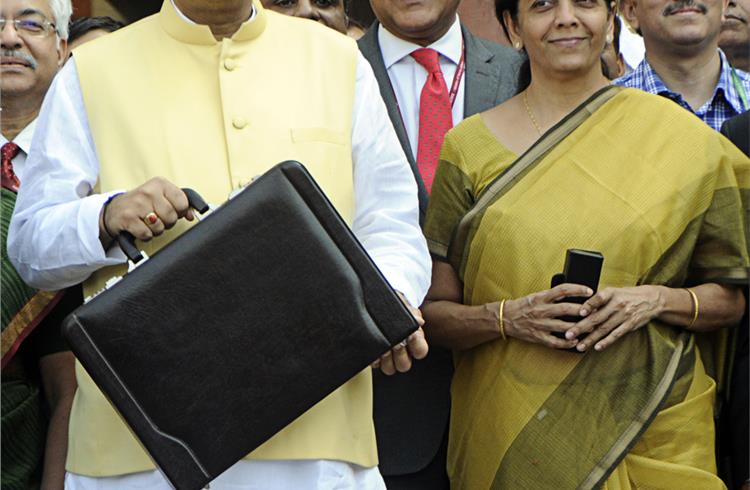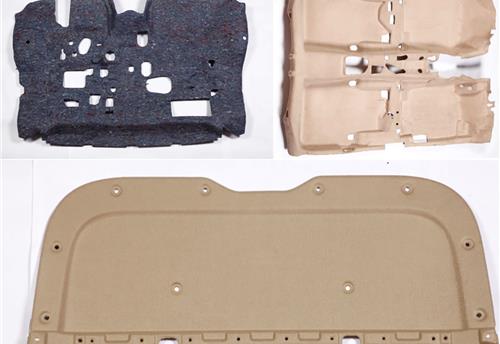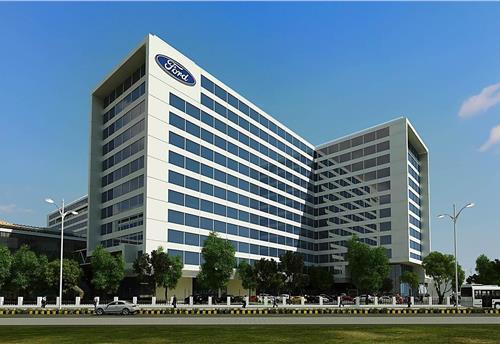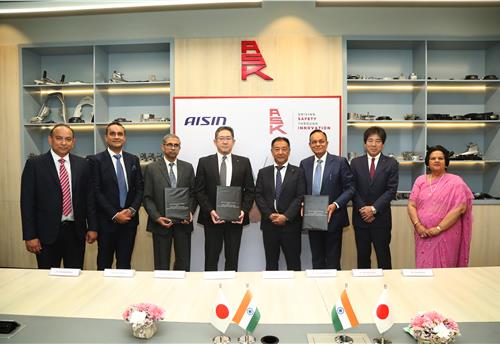India’s auto industry welcomes FY15 Budget’s GST intent, infrastructure vision
The Indian automotive industry has given the thumbs up to the Union Budget 2014-15 announced by finance minister Arun Jaitley today.
The Indian automotive industry has given the thumbs up to the Union Budget 2014-15 announced by finance minister Arun Jaitley today. Industry captains said that within the existing limitations of a tight fiscal situation and the need to keep the current deficit in check, the Budget more than addresses some of the key issues of the economy.
For a start, the finance minister reassured industry of the new government’s intention to introduce the Goods and Services Tax (GST) this year. The GST regime will streamline the tax administration and ensuring higher revenue collections for the states. “The government is committed to provide stable and predictable taxation regime that will be investor-friendly and spur growth,” said Jaitley.
The GST has been a longstanding demand of the industry. Sugato Sen, deputy director general of SIAM, says that once it is enforced it will enable a uniform tax structure and give a boost to industry growth.
Another issue that had rankled industry as a whole was the retrospective tax. Jaitley sought to assure the investor community that the government will not ordinarily bring about any change retrospectively and which can create fresh liabilities. With this, the government hopes to put to rest some of industry’s larger fears. The minister was not expected to scrap the retrospective tax. He said all industrial issues, following certain retrospective amendments to the Income Tax Act 1961 undertaken through the Finance Act 2012, will be referred to a high-level committee constituted by the Central Tribunal of Direct Taxes before any action is initiated in such cases. This would ensure an investor-friendly environment to those investing in the country.
Another positive particularly for small and medium enterprises (SMEs) is the 15 percent investment allowance for a three-year period to the manufacturing company that invests more than Rs 25 crore in plant and machinery. This is expected to benefit SMEs in the auto component sector and spearhead future investments in capacity augmentation.
The much-needed continuation of excise duty cuts was already announced last month and these are now valid till December 31, 2014. This will provide a fillip to automotive sales and June 2014 results, as revealed by SIAM yesterday, have already shown the sector – particularly cars and two-wheelers – is beginning to look up.
Sen is optimistic about the focus given to building roads and highways that will help logistics and transportation. The roads sector constitutes a very important artery of communication in the country. Jaitley proposed an investment in the National Highways Authority of India and state roads of an amount of Rs 37,880 crore, which includes Rs 3,000 crore for the North East. During the current fiscal, a target of national highway construction of 8,500km has been set. Other incentives for the sector will be the revival of the Special Economic Zones (SEZs) and making them effective instruments of industrial production, economic growth, export promotion and employment generation. A national multi-skill programme called Skill India has also been proposed.
The Budget contains a host of infrastructure proposals indicating the government’s stated intention to give the sector a key boost.
-A sum of Rs 14,889 crore proposed for the PM’s Gram Sadak Yojana that provides connectivity to villages.
-A sum of Rs 100 crore for preliminary work on metro rail systems for Lucknow and Ahmedabad
-Proposes an outlay of Rs 7060 crores for smart cities
-Work to begin on select expressways along some industrial corridors.
-Proposed inland waterway from Allahabad to Haldia for which an outlay of Rs 4,200 crore has been proposed. It is expected to be built over a six years.
Though PPPs haven’t quite had the impact that was expected both in roads and railways (as minister Gowda himself admitted), the government appears keen to support the mainstreaming of PPS with an institution called 3P India that will have an initial corpus of Rs 500 crore.
In that sense there is a continuity of policy framework with the Railway Budget which also spoke about the need for PPP and is an acknowledgement of the need to raise funds from the private sector.
The government’s proposals to allow increase in FDI in insurance and defence will also be welcome. For the latter, the auto sector players like Ashok Leyland and Tata Motors will certainly target for opportunities going forward.
Finally, this Budget is valid for six months after which a new one will be presented for 2015-16, work on which should begin right after this Budget is passed. In his opening remarks, the finance minister spoke about green shoots of recovery appearing in the world economy, which is expected to grow 3.6 percent in 2014 compared to 3 percent in 2013, and that the Euro zone is showing some positive signs. But the FM has more immediate concerns. He also cautioned that a poor monsoon for India this year means that purchasing power and demand in the rural areas will be impacted and should there be a flare up in the ongoing Iraq crisis, it would push crude prices up, further impacting India’s already high levels of inflation.
All in all, the Budget is no big bang. Instead, it’s all about the big picture.
INDUSTRY GIVES A THUMBS UP
Commenting on the Budget, Kenichiro Yomura, president, Nissan India Operations, said: “The Budget is based on fiscal prudence with a progressive outlook. We appreciate the finance minister’s considerations and his aim to achieve 7-8 percent GDP in 3 to 4 years. Structural reforms, including FDI liberalisation in defence and insurance, initiatives to support local manufacturing and commitment to remove retrospective taxation, are significant steps from a larger macro-economic perspective.
The previous financial year was challenging for the auto industry and we were expecting bolder reforms in favour of the auto industry. The earlier decision to continue the excise duty concession till December 2014 along with the reduction in steel prices and elimination of customs duty on auto components certainly bodes well for the sector. The government’s intent to move towards a GST regime is good news and we hope it is implemented at the earliest. The industry really needs a robust and streamlined indirect taxation structure that will lend customers the confidence to spend more owing to the taming of prices. This should have a positive impact on car shopping as well. We were expecting a move towards making green vehicle technology a reality so that we could get the opportunity to bring our world-class electric and hybrid vehicles to our Indian customers’ doorstep.”
Dr Pawan Goenka, executive director, Mahindra & Mahindra, said: “The finance minister has delivered a well-defined and prudent Budget with specific focus on infrastructure, manufacturing and rural schemes. Seen in a macroeconomic perspective, it has laid clear emphasis on supporting investment. Though there were no big-bang announcements, the intent is clear. It is a move towards the right direction and there is an attempt to put a lot of placeholders through the various Rs 100 crore schemes. In fact, I see this Budget as a blueprint to the direction the government will take over the next nine months. Specific to the automotive industry, the extension on reduction of excise duty had already been notified. We did expect an announcement on incentives for electric vehicles which did not come through. A firm date for GST implementation would have been welcome.”
Eberhard Kern, MD, Mercedes-Benz India, said: "The Budget focuses on an inclusive growth and is forward looking. Though there were no major announcements for the auto sector, a lot of significant announcements towards creating infrastructure, developing manufacturing and enhancing agriculture is there. All these have a long-term effect on driving the automobile industry and bring growth back to the sector. We eagerly wait to see a quick implementation of these significant announcements and are confident of a positive outcome. Our long term view on the growth potential of India remains bullish."
Joe King, head, Audi India, said: “We expect the steps announced to lead to an improvement in economic sentiment which will in turn benefit the automobile industry in the long term. The decision to extend the cut in excise duty till December 31 announced earlier also augurs well for the industry. We welcome the announcements related to infrastructure growth such as development of 100 smart cities and rural roads development. The auto industry will be one of the beneficiaries of increased savings due to direct and indirect tax proposals.”
Arvind Saxena, president and MD, General Motors India, said: “The Budget looks to be a reform oriented one. Given the condition of the economy, the direction given is a positive one and the call for fiscal prudence is a welcome move. As far as the automotive industry is concerned, the focus on rural roads, highways and expressways are welcome decisions. The proposals and announcements made, if implemented effectively, should have a positive impact on industry and the economy as a whole going forward. The challenge now is the implementation of the proposals.”
Anirudh Bhuwalka, MD and CEO, AMW Motors, remarked: “This is a very pragmatic Budget with the finance minister addressing several issues to invigorate growth related to housing, infrastructure, manufacturing and the finance sector. While it is not ‘big bang’ given the fact that he has had only six weeks, he has built in continuity as well as a new direction to spur growth. The execution will be critical, especially in the large number of areas where PPP is involved, but overall the Budget has given optimism that we are on track."
Congratulating the finance minister, Harish Lakshman, president, ACMA, said, “We are glad that he has unveiled a pragmatic Budget with adequate focus on development of the social sector as well as that of the industry and infrastructure. ACMA also welcomes the announcement of the intent for implementation of GST and DTC at an earliest, as well as measures to encourage the Micro, Small and Medium sector (MSMEs) including revision of its definition. MSMEs constitute over 70 percent of ACMA’s membership and scaling-up has been a challenge for the sector”.
He added that extending a 15 percent allowance to companies investing more than Rs 25 crore in new plant and machinery will help attract investments in manufacturing sector including automotive. A major relief to manufacturers is the amendment announced in the Central Excise Law to overcome the impact of the Supreme Court’s Fiat judgment. This has been a longstanding demand of the manufacturing industry at large and more specifically of the auto industry.”
Photograph: Finance minister Arun Jaitley en route to presenting the Union Budget. Seen here with Nirmala Sitharaman, minister of state for Commerce & Industry (by Mohammed Shafiq).
RELATED ARTICLES
Uniproducts India targets 15% growth till FY2027, eyes new EV OEMs for NVH parts
The Noida-headquartered company, which is a leading manufacturer of roof liners, floor carpets, sound insulation materia...
Ford to build more EV software capability at Chennai tech hub
Ford Business Solutions India, which currently employs 12,000 personnel set to add 3,000 more; Ford, which is known to b...
ASK Automotive to set up JV with Aisin to sell aftermarket parts for cars
Ask Automotive will have 51% of the equity of the joint venture to be set up with Aisin Asia (Thailand) Company and Aisi...





 10 Jul 2014
10 Jul 2014
 4209 Views
4209 Views





 Autocar Pro News Desk
Autocar Pro News Desk




